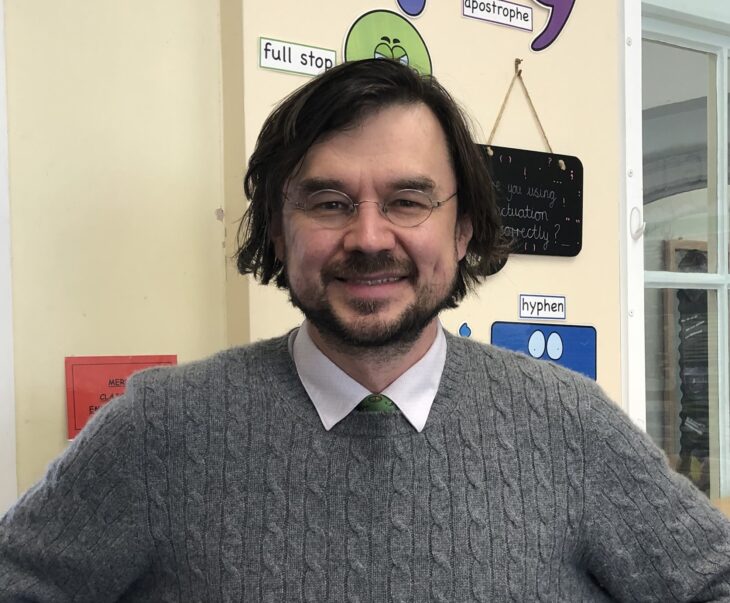Close
- About Us
- Programme
- How to Apply
February 2022

Where do I start……..
A general reflection: The striking feature about my experience is that there was time, palpably more time than in mainstream schools, and this was not only due to smaller class sizes. Rather, the pedagogical approach was inclusive and differentiated, and thus allowed for a greater focus on and accommodation of students’ needs and abilities, or, in other words, is a role model to me for human first teaching.
Regarding cognitive applied approaches: use of MWBs, visualisers, instant marking, responsive teaching, starter and exit tasks, management of activities, cognitive load, short-term and long-term memory, all applied consistently at Dove House. I have seen some excellent use of the above, which I will take on board and use to improve my own practice. I feel that the 90-minute lesson format is useful to create a good environment for learning without the heightened stress levels of very short lessons. While this is not something I can change at school level, the appreciation of the deficiencies of very short lessons (45 or 50 minutes in my current case) while working with a number of either SEN students and students with greater support needs makes me think of greater differentiation, scaffolding, and also of cognitive ‘unload’, without this being a detriment for faster students.
The focus on modelled general behaviour and communication was also striking (in EPIC classes, but these expectations were also applied across the board). This makes me think of tutor groups in mainstream mostly, but also of the benefits of well-planned, well-executed and holistic behaviour policies. While these are, to quite a successful degree, in place in my training schools, I feel that there can be improvement in modelling and teaching expectations, good behaviour and respectful communication to and between our students.
One ulterior aim to me, wonderfully modelled at Dove House, is to create and maintain both a culture and environment conducive to learning as well as a culture of an everyday space recognised and valued by students as predictable and safe. The week has also made me think about the requirements of subject knowledge for the students. As some move on to pass their GCSEs, whereas a majority will not. While this will be the inverse at mainstream schools, I would still like to think more about what qualities I would like my (history) students to develop, beyond the strictly imposed GCSE requirements.
Having worked with the World Studies teacher across two and a half lessons (history lessons incidentally) made me better appreciate students’ learning of concepts such as time, place, change, self within history. I will try to absorb this experience and develop from tools to create or improve activities, questions and student feedback – such as along the lines of thinking about the self-local-regional-national-global, and the relevance to our lives.
A greater appreciation of students’ verbal and writing skills and speeds will certainly find its way into my classrooms. In fact, having taught a lesson at Brighton Hill on Wednesday with my specific ‘close-the gap’ group incorporating material for differentiation and support of my SEN students (some of the material fine-tuned to their abilities providing glossaries, key words, mostly with my SEN students in mind, but which probably benefited many other students), in the classroom was a nice instant practice of what I can – and will – do more/better as an outcome of my learning at Dove House.
Finally, at least in order to come to an end, having had the time over the week to observe and interact with many students with a variety of needs and abilities makes me appreciate that, down to every individual, students indeed have different requirements, and that teaching, even in classrooms of 30, needs to have a degree of flexibility and responsiveness on top of the structure and routines that we deliver through our lessons.
Bart Zielinski – History Trainee
Share article